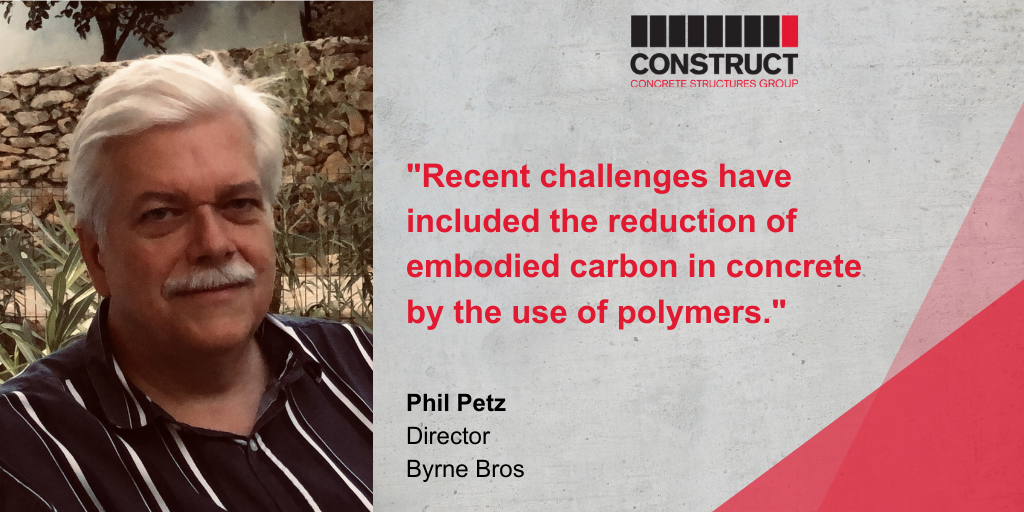
Tell us a little about the company and your own career.
I started out as a trainee engineer and worked my way up to become a site agent, working on various civils projects. Between projects, I was giving the opportunity to do some small-scale estimating, discovered I had an aptitude for it and went on to become an estimator. I’ve spent the past 13 years with Byrne Bros in pre-con and estimating.
Last year the company celebrated 50 years since its original inception by Patsy and Johnny Byrne. We’ve evolved, with our staff, into a specialist groundworks and concrete structures contractor. Our projects have included such well-known structures as the Olympic Stadium, the Shard and the Tate Modern.
What are the main challenges facing the sector today?
Recent challenges have included the reduction of embodied carbon in concrete by the use of polymers. That’s something that needs to be encouraged by the clients. Unfortunately, it’s not something we have direct control over, because we’re building to a specification; back-up of the ultimate clients is required in order to carry it through.
The other challenge, which we have more control over, is trying to de-skill some of the work in terms of using standard systems and we’re progressing with various systems that fulfil that aim. The workforce is becoming older – experienced workers are retiring and the younger workers are coming up, from a carpentry perspective, with a breadth of skill that isn’t quite the same. So, it’s a question of working efficiently and utilising systems in order to attempt to address the skills gap.
Another consideration is the use of factory production methods, but at the moment they don’t appear to be competitive. In my view, the main reason is that they invariably have duplicated haulage costs, haulage limitations and lifting restrictions with regard to the capacity of site cranes. It hasn’t yet got to the point where it is cost-effective for the client.
In what other ways could common standards support the sector?
The Federation of Piling Specialists has a common set of subcontract terms that are built into their contracts. I don’t think we’ll get to that stage just yet, but it would be beneficial for subcontractors to have a common schedule of attendances.
How could partnering between main contractors and Tier 2 contractors be improved?
There are lots of big projects around and it appears that the main contractors may not have been given the opportunity to partner to provide best value, for the likes of HS2, before they go out to competitive tender. The downside of that is that potentially, in the next few years, there could be a shortage of skilled staff to carry out these works. It would make sense to achieve partnerships to try and guarantee the supply chain.
Where do the opportunities lie?
Some clients now come direct to specialists for demo and concrete works. From our perspective, that works well as the jobs that clients approach us for directly are generally smaller scale and don’t tend to present a conflict with the main contractors. The need to raise awareness about specialist services seems to have been picked up by the PQS community and we’ve certainly had more inquiries.
You can download the PDF interview here.